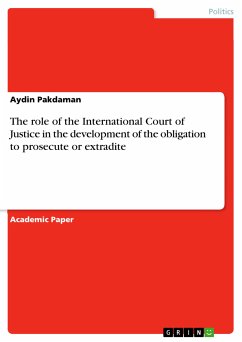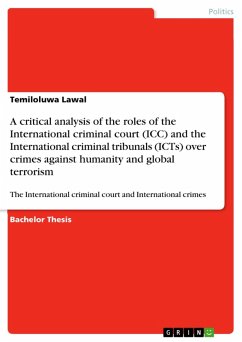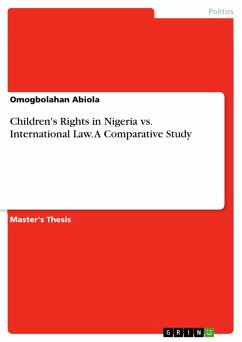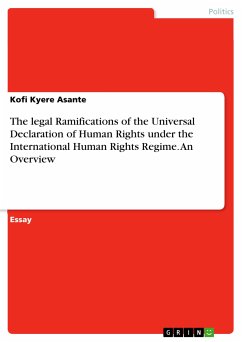Academic Paper from the year 2018 in the subject Politics - Topic: Public International Law and Human Rights, grade: A, Urmia University (Urmia Azad University), course: International Law, language: English, abstract: The determination of the international community to combat non-criminality and the fight against international crime has prompted the international community to find ways to address the legal vacuum existing in international criminal law. Due to the temporary nature of the courts established since World War II, as well as the absence of major crimes such as terrorism and human trafficking in the Statute of the International Criminal Court, the international community is inclined towards domestic courts and plans for actions such as global jurisdiction and commitment to extradition or trial. Due to differences arising from the obligation to perform an extradition or trial, it is necessary to examine the principles governing this obligation. Meanwhile, the judiciary and international bodies' opinions on these actions are of great importance. The International Court of Justice is one of the most prominent legal entities in the international community in terms of its distinctive and important role in the development of international law. In the present article, the Tribunal's judgments on the obligation to extradite or trial and the effect of the Court on the development of this commitment have been examined.
Dieser Download kann aus rechtlichen Gründen nur mit Rechnungsadresse in A, B, BG, CY, CZ, D, DK, EW, E, FIN, F, GR, HR, H, IRL, I, LT, L, LR, M, NL, PL, P, R, S, SLO, SK ausgeliefert werden.









